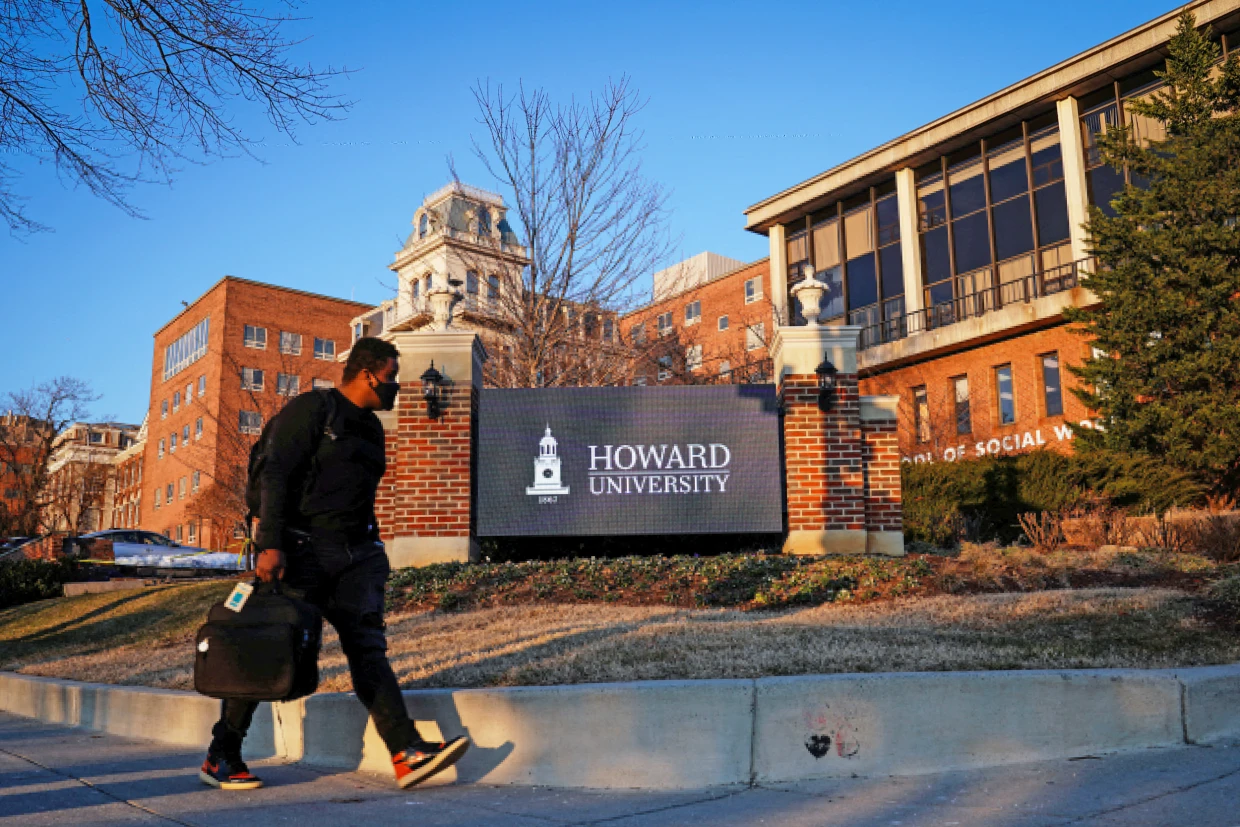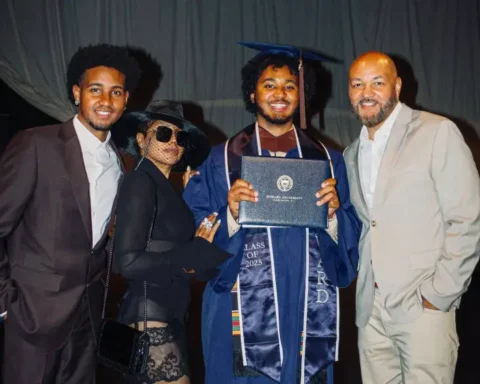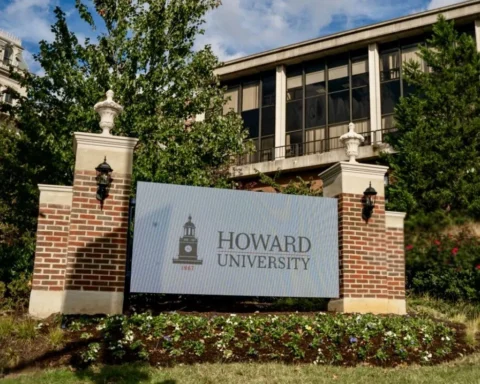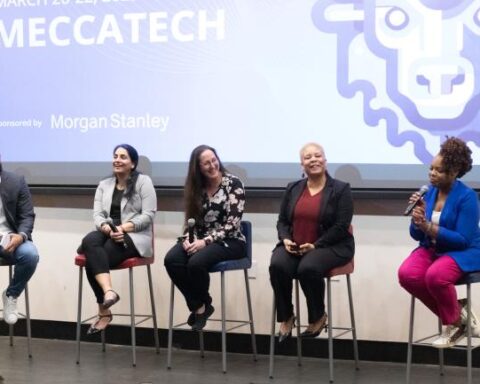A group of faculty members at Howard University, a historically Black university in Washington, D.C., plans to strike Wednesday following calls for increased wages and better working conditions.
The Howard Teaching Faculty Union, composed of part-time adjunct and non-tenure-track faculty members, said the strike is the outgrowth of more than three years of failed negotiations with the university. If an agreement is not reached by Tuesday, hundreds of professors represented by the Service Employees International Union, or SEIU, Local 500 threatened to lead a three-day strike starting Wednesday.
The group is fighting for the school to provide benefits including health insurance regardless of course load, pay raises and multi-year contracts for job stability. Among the group’s top concerns is closing pay disparities. The group said it has been making progress in the negotiation process lately.
“Since we called the strike, there’s been a very different tone at the table and a sudden willingness to actually bargain,” said Sean Pears, a non-tenure-track full-time faculty member in the school’s English department. “We would very much like to settle, and I’d say we’re getting indications that the administration feels the same, but we’re not there yet.”
Adjunct and non-tenure faculty members at other colleges in the U.S. are facing similar challenges. Nearly 35 percent of adjuncts earn between $25,000 to $50,000 per year across teaching and nonteaching jobs, with 48 percent reporting job insecurity and only 20 percent being able to cover monthly expenses, according to a 2020 American Federation of Teachers survey.
Instructors at Howard University earned an average of $64,797 while lecturers earned approximately $49,879, according to 2018-2019 data compiled by The Chronicle of Higher Education. Overall, this was less than the average salaries for instructors and lecturers in Washington, D.C., who made $73,074 and $52,731, respectively, in the 2018-2019 academic year.
The group said the university engaging in the negotiations is overdue.
“It’s longer than any contract negotiations should take,” Pears said.
Pears, who makes nearly $48,000 per year, said he is constantly anxious about the future due to low adjunct wages at the university.
“I taught six classes to try to make what’s essentially a living wage,” Pears said, adding that he enjoys working at the school but job instability keeps him and colleagues eyeing other opportunities. “It’s a strain, and I see myself not doing everything that I would like to do in the classroom because of that overburdening.”
Aisha Bonner Cozad, an adjunct professor in the school’s social work department, said some instructors are working multiple jobs to survive. In her department, she said this includes colleagues who are taking clients on the side in addition to their course load.
“This sort of piecemeal work, this hustle, this sort of gig economy — it is extremely detrimental to one’s mental health,” Cozad said. “It is important to recognize the sort of stress people are under.”
Cozad said non-tenured faculty members are required to reapply for their jobs every year, adding to this burden.
“That makes it very difficult to make plans when you are counting on money to pay your bills and make other decisions that you need to make based on your income,” she said.
In a statement to NBC News, Howard University spokesperson Frank Tramble said the school is trying to reach an agreement with the faculty union.
“Our commitment to a peaceful bargaining process has not changed, and we will continue advancing good faith efforts to reach an agreement with the union and address the needs of adjunct and non-tenure track faculty and the University,” the school said in the statement.
On Howard’s website, the school added that a threatened strike would pose disruptions to students’ learning and that classes taught by nonunion professors would go on as scheduled. Professors involved in the strike would not be terminated, the school said.
Jasmine Joof, a sophomore at Howard University and a student organizer, said the teachers’ economic strain is also felt in the classroom.
“Students can’t get proper education if professors aren’t properly taken care of,” Joof said. “A lot of professors are working two or three jobs outside of teaching a full course load, so you don’t get the best teaching, and it’s not their fault at all. The university isn’t providing proper benefits.”
Last year, Joof was among the Howard University students who protested unsafe housing conditions at the university, which they said included mold, flooding and rodents. Students reached an undisclosed agreement with the school.
Cozad said her colleagues are seeking to live an economically stable life.
“We simply want to make enough money and have enough stability to do our jobs well,” Cozad said. “To be able to go home at night knowing that our lights are on and that our families are taken care of, as we work to educate the future of American citizens … we do not think that’s too much to ask.”





